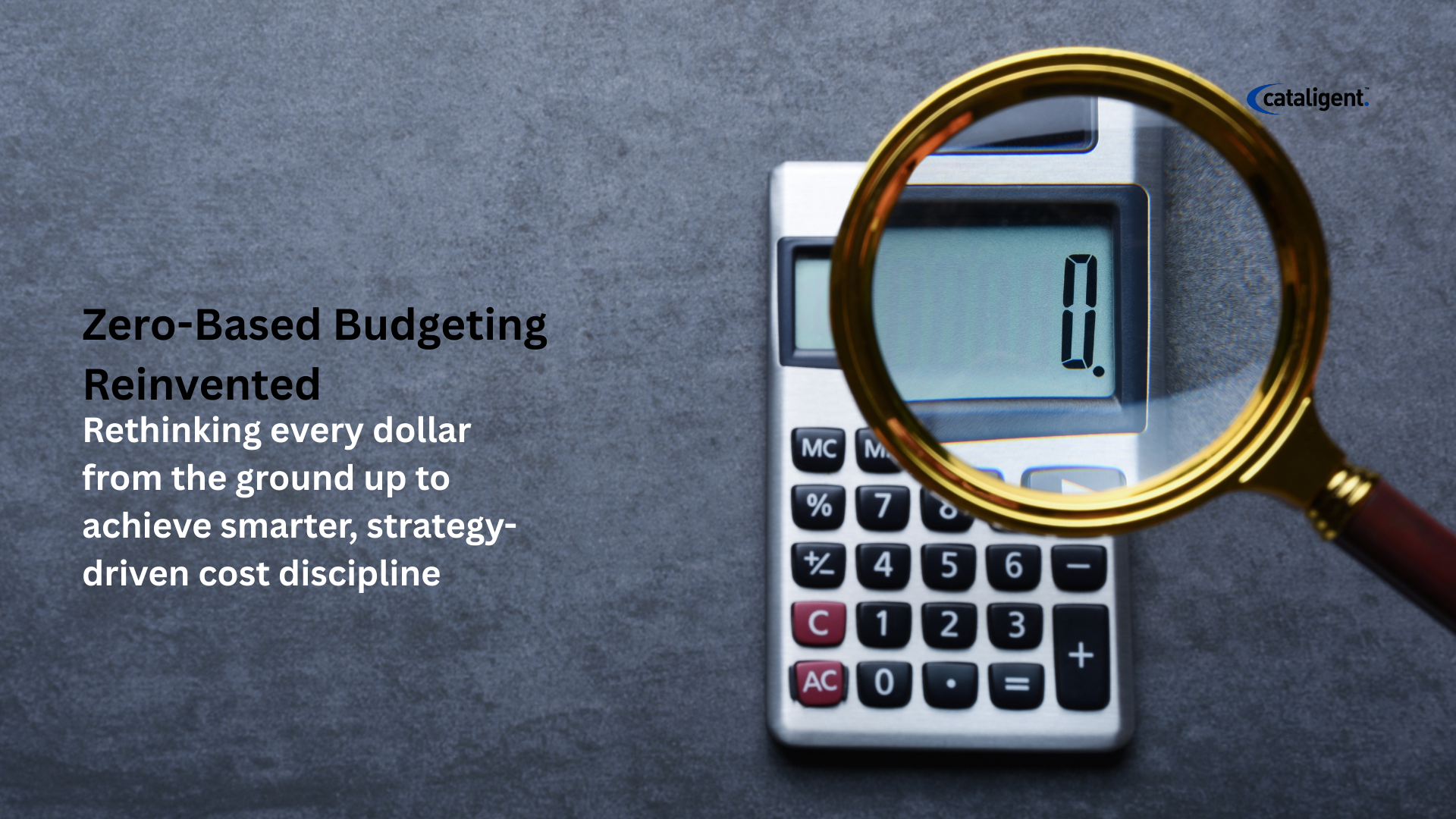Budgeting is often seen as a routine accounting exercise, but traditional methods frequently entrench inefficiencies. Line items are adjusted incrementally each year, often carrying forward legacy costs that no longer provide value. Enter Zero-Based Budgeting (ZBB) — a methodology that starts every budget from zero, requiring every expense to be justified. Reinvented for modern businesses, ZBB is not just about cutting costs; it is a strategic tool to drive cost discipline, operational efficiency, and growth-focused investment.
What is Zero-Based Budgeting?
Zero-Based Budgeting is a budgeting approach where all expenses must be justified for each new period, rather than assuming previous allocations are appropriate. Every activity, process, and department begins from a “zero base,” ensuring that resources are deployed only where they add measurable value.
Expanded Points:
- Fresh evaluation: Every cost is scrutinized, preventing outdated or redundant spending from sneaking into budgets.
- Alignment with strategic goals: Resources are directed toward initiatives that directly contribute to growth, efficiency, and transformation.
- Enhanced accountability: Managers must justify every line item, promoting thoughtful decision-making.
- Data-driven prioritization: Expenses are analyzed for ROI and impact, encouraging smarter allocation.
Why It Matters
In today’s dynamic market environment, businesses cannot afford to maintain legacy costs or inefficiencies. Zero-Based Budgeting ensures that spending is purposeful, measurable, and aligned with strategic objectives.
- Eliminates waste: By questioning every expense, organizations remove low-value activities and redundant processes.
- Promotes strategic resource allocation: Money is not just spent; it is invested in high-priority areas that yield tangible results.
- Enhances agility: With ZBB, budgets are designed to be flexible and adaptive, supporting rapid response to market changes.
- Supports cost-saving strategies: ZBB identifies areas where spending can be reduced without compromising operational effectiveness or innovation.
Reinventing ZBB for Modern Organizations
Traditional ZBB can be time-consuming and resource-intensive. Modern businesses adopt reinvented ZBB frameworks that leverage technology, analytics, and cross-functional collaboration to make the process efficient, transparent, and actionable.
- Automation: Advanced budgeting tools and workflow platforms streamline data collection and reporting.
- Scenario analysis: Predictive models allow teams to simulate different budgeting outcomes, ensuring decisions are both realistic and strategic.
- Integrated performance metrics: Budgets are tied directly to KPIs, allowing ongoing tracking of cost efficiency and value creation.
- Collaborative decision-making: Teams across functions contribute insights, ensuring that every dollar is justified and strategically aligned.
Steps to Apply Zero-Based Budgeting
- Identify all activities and cost drivers: List every function, project, and process that consumes resources.
- Evaluate each cost for value: Determine ROI, strategic alignment, and efficiency for every expense.
- Build budget from zero: Allocate resources only to justified activities, ensuring alignment with organizational goals.
- Integrate with performance management: Connect budgets to measurable outcomes to track efficiency and results.
- Monitor and adjust continuously: Use real-time analytics to adapt budgets based on changing circumstances.
This systematic approach ensures ZBB is both rigorous and flexible, driving cost savings while supporting long-term growth.
How Cataligent Helps
Cataligent leverages CAT4 and consulting expertise to implement zero-based budgeting in a way that balances rigor with practical execution. We help organizations turn ZBB into a strategic enabler rather than a one-off exercise.
Cataligent’s approach includes:
- Comprehensive cost analysis: Identifying legacy expenses and low-value activities.
- Technology-enabled budgeting: Leveraging tools to automate data collection, reporting, and scenario simulations.
- Cross-functional collaboration: Engaging stakeholders to ensure budgets are justified and aligned with strategic priorities.
- Value-focused allocation: Directing resources to initiatives that deliver measurable ROI and support transformation.
- Continuous monitoring and adjustment: Establishing feedback loops for ongoing efficiency and strategic alignment.
With Cataligent, Zero-Based Budgeting is not just about trimming costs—it becomes a dynamic process that embeds cost discipline, drives efficiency, and strengthens organizational transformation.

